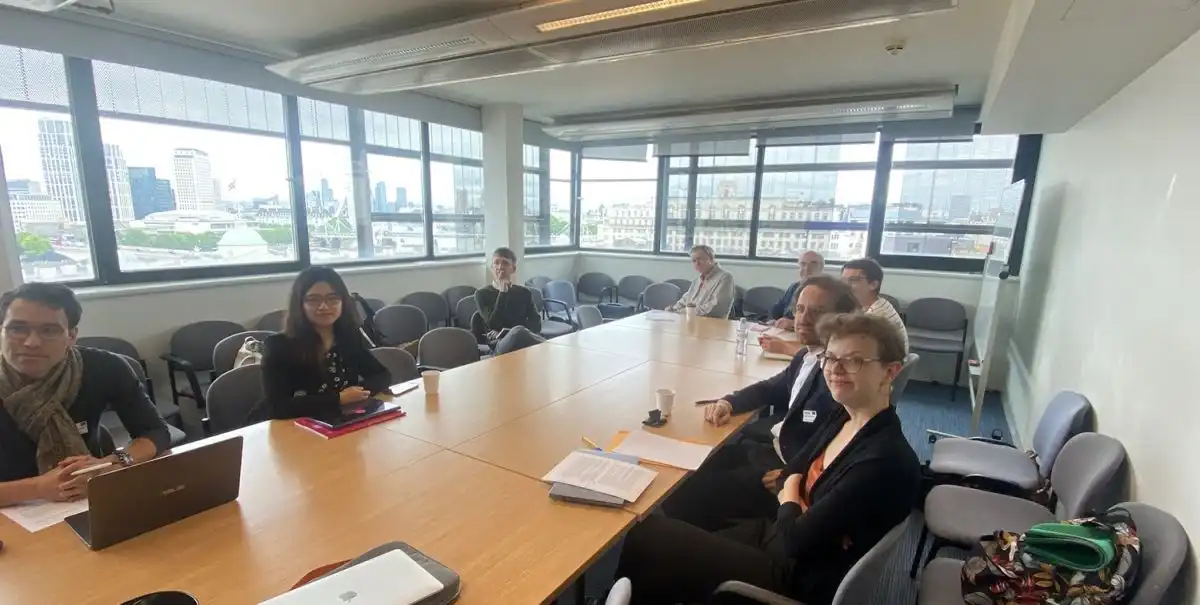
Home>The Research>International partnerships
International partnerships
The Centre for History hosts a large number of foreign researchers throughout the year (50 visiting professors in the last five years), funded post-doctoral fellows (including three Marie Curie Fellowships (FR) in the last four years), and PhD students on research visits. The Centre benefits from the international collaboration networks of our researchers, which extend across every continent and include both individual networks and cooperation set up through funded research projects (see the projects of Giacomo Parrinello, Nicolas Delalande, and M’hamed Oualdi).
On a more institutional basis, the Centre for History benefits from Sciences Po’s membership in CIVICA, a network of European Universities (FR) established in 2019, and has cooperation agreements with Oxford (OxPo Partners) and King’s College London.
The Centre for History is also a member of several international research networks designed to promote faculty and PhD student mobility and exchanges with partner universities on a thematic basis. These networks play an essential role in doctoral training and lead to numerous jointly supervised and bi-national PhDs. The main focus areas are described below.
Political History
The Centre for History is a member of several international research networks in political history, our main focus area.
The Centre is a co-founder of the Association for Political History (APH), through Marc Lazar who was its first president. The APH is a large network of European universities (including King’s College, IUE, Luiss, Padua, Bielefeld, Leiden, Amsterdam, Geneva, Stockholm, Aarhus, Jyväskylä, and more), devoted among other things to doctoral training and exchanges in this specialist field. It meets every year for annual thematic conferences and has a twitter account (FR) to pass on its news and information.
History of International Relations
Mario del Pero coordinates several initiatives on behalf of the Centre for History in the field of international relations history.
Each year, a European Summer School on Cold War History is offered for PhD students and early-career researchers, bringing together specialists from all over Europe interested in the history of the Cold War. So far, participating institutions have included:
- European University Institute
- London School of Economics
- University of Vienna
- University of Padua (IT)
- University of Trento (IT)
- Università degli Studi Roma Tre (IT)
- and Università degli Studi di Roma “Tor Vergata” (IT).
A doctoral workshop on the history of international relations is also organised on an annual basis with the University of Cambridge, co-directed by Cambridge specialists David Reynolds and Andrew Preston.
In addition to these two annual events, an international history seminar is held throughout the academic year, as part of a programme with the London School of Economics (LSE) and its research centre IDEAS. The sessions take place alternately in London and Paris.
Centre For History and Economics (CHEP) In Paris
CHEP is based in Sciences Po (CHSP and CSO). The goal of CHEP is encourage cooperation among academics and graduate students conducting innovative historical research on all aspects of economic life. It will add ot the opportunities of mutual visits between the faculties of Sciences Po, Harvard, Cambridge, and the Freie Universität Berlin.
History of Europe
The transnational interdisciplinary network GRAINES (Graduate Interdisciplinary Network for European Studies), coordinated by Jakob Vogel, organises regular workshops on the transnational history of Europe with the Universities of Cologne, St. Andrews, Basel, Prague, and Vienna.
It is complemented by the Europe and the World network, which brings together:
- Princeton University
- Central European University of Budapest
- European University Institute in Florence
Elissa Mailänder is the academic coordinator.
The Centre for History and the Marc Bloch Centre, supported by the Franco-German University, offers an annual scholarly workshop for students of the Centre for History and the Marc Bloch Centre. Focusing on the city of Berlin in the 20th century, the workshop invites experts and non-expert enthusiasts to approach the history of Germany from a new angle. The academic organisers are Elissa Mailänder (Sciences Po) and Aurélie Denoyer (CMB).
Last programmes:
- Contemporary migration in Berlin from 1917 to the present day. Topographic history field workshop for early-career researchers (May 5-11, 2019). 2019 workshop programme and final report (PDF, 2.6Mo, FR)
- Family ties in wartime and post-war Berlin (1939-1961). Topographic history field workshop (24 to 30 April 2016). 2016 workshop programme (PDF, 530Ko, FR)
Collaborative Conference CHSP/King's College
In 2021-2022, Sciences Po (CHSP) and King's College are launching a double master's degree in global and international history. This Joint Graduate Workshop, held in London on June 6, 2022, is the first step in this cooperation between the two institutions.
Four doctoral students from Sciences Po - Evan Bonney, Flavia Canestrini, Blaise Troung-Loï, and Yuqing Qiu - and three doctoral students from King's College presented their research at this doctoral colloquium. These were discussed by members of the permanent faculty of both institutions.
The day was opened by the Head of the History Department at King's College, Professor Stephen Lovell, and closed with a round-table discussion on doctoral thesis writing and the state of the academic market (moderated by Professors Simon Sleight - King's College and Mario Del Pero -SciencesPo).
The symposium was funded by the “Research and Innovation Joint Workshops” program of the French Embassy in London and King's College.
Doctoral symposium program du 06/06/2022 (PDF 39 Ko)
